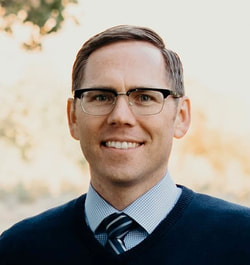|
I work in the Cooperative Extension System. We take the science from our Land Grant Universities and create educational programs for the people in our communities. Our objective is to help the public use research-based information to improve their lives. Many of us are "Experts" who don't work out loud, so we don't get the opportunity to serve all the people that we should be reaching. I believe Extension professionals must put themselves in the flow of information, staying up-to-date in their field of expertise. I also believe that we can provide value for our clients by curating research-based information and vetting the information that is not. Curating alone is not enough, we must also take a leadership role in disseminating information online by leading networks of people who need Extension, but just don't know it. This is my presentation outline from the NAEPSDP national conference in San Diego, CA.
NAEPSDP National Conference - San Diego, CA
Presentation Outline I. Why do we need to be thought leaders?
II. Why do we need to be thought leaders online?
III. Mastering Google Search - Do you really know how to perform a search query? Can you find the information you are looking for? IV. What is your area of expertise?
V. Setting Up Google Alerts - This is how you put yourself in the flow of information
VI. Sifting Your Content
VII. Curating Content
VIII. Sharing Your Thoughts
IX. Packaging Your Thoughts - Use tools like these to package what you have X. Blogging
3 Comments
Victor Villegas
3/9/2017 04:59:13 pm
Good post, Paul. I'm not sure I totally agree with section one of your presentation, though. Yes, it is great when Extension professionals can provide information, but I'm not sure they need to be "Experts". I actually detest the designation. To me it implies an us vs. them mentality. Yes, as Extension professionals, we have a lot of information, research and university resources available we can share. However, we don't have a corner on the knowledge market or expertise anymore. We need to do more than just transfer our knowledge and "bring it to the public", as you state.
Reply
11/27/2017 05:48:07 am
Basically, the 'information flow' is nothing but the signal that the brain of an individual sends and obtains to involve in the discussions or exchange. I don't think all the organizational information are conveyable. Thus, a leader has to effectively manage the information flow that usually continues presenting provocations to the public tie-ups and maintaining the approach-oriented trade environment worldwide. It's not an easy task. In an establishment, the information normally flows in 5 directions- 1)Downward, 2)Upward, 3)Lateral, 4)Diagonal, and 5)External. Thus, a leader must take the appropriate strategies and follow the above tactics to keep the relevant information safe for the betterment of the corporation.
Reply
Leave a Reply. |
Paul Hill, Ph.D.I design, plan, and evaluate economic development programs for Utah State University. Archives
September 2022
Search this site:
|
||||||

 RSS Feed
RSS Feed
